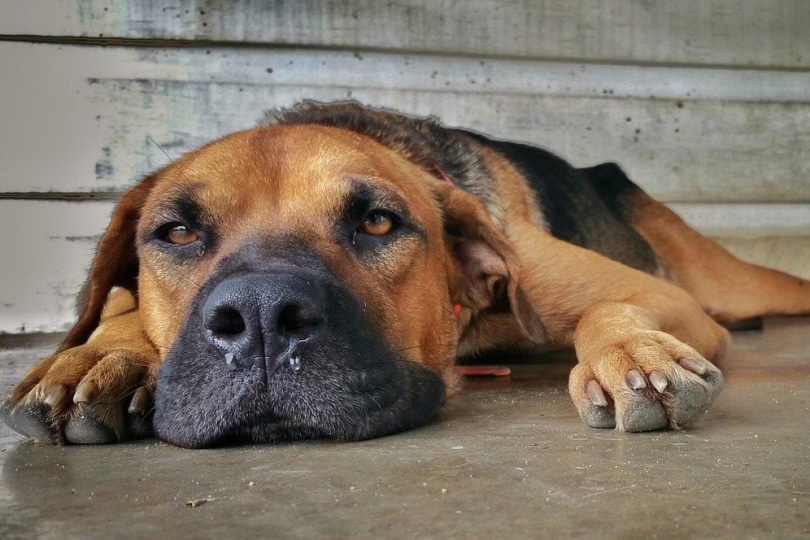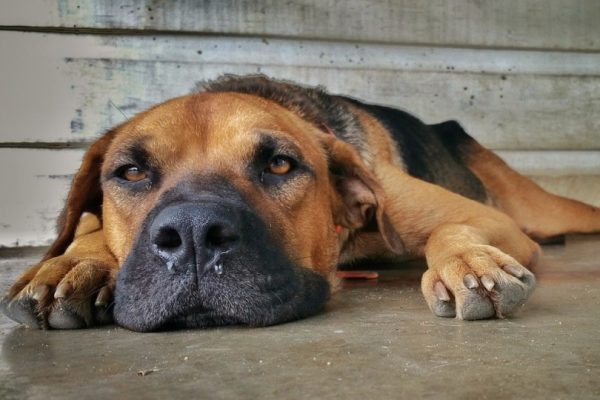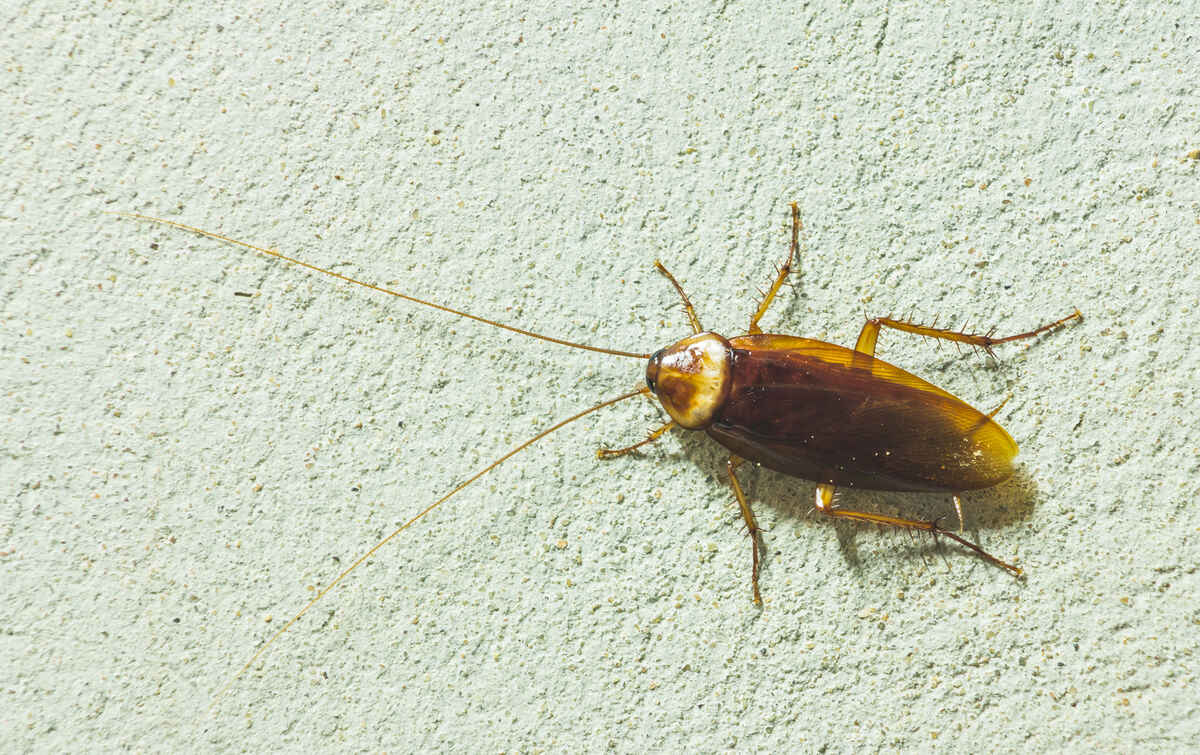Nobody wants their dog to walk around with a bunch of mucus dried in their nose. But your pooch can’t clean it up themselves. Therefore, we must step in as responsible pet owners to take care of the problem. Luckily, cleaning up dog mucus is easy to do. The hard part is figuring out why your dog is producing mucus. Here’s everything that you need to know.
How to Clean Dog Nose Mucus (4 Simple Steps)
1. Clean With a Cloth
You can easily get rid of mucus buildup on and around your dog’s nose with the help of a clean, damp cloth or cotton pads. To sterilize the water, first boil it and then let it cool. Start by wetting the cloth with warm water, then squeeze out the excess. Use the cloth or pad to gently wipe the affected area until the mucus is gone. Start at the nostril and move out and away from the nose. You may need to rinse your cloth several times as you work to ensure that you don’t transfer mucus back onto your dog, or use a clean pad each time. You can use this cleaning method any time that mucus starts to build up. If the nose is very crusty you may need to gently hold the cloth a little longer on the crusts to loosen up the discharge.
If you are looking for the perfect product to clean your dog's sensitive areas or would benefit from an on-the-go option, Hepper's Wash Wipes are our recommendation. These premium wipes are thick and durable enough for the toughest of paw messes, while still being soft enough to use on your dog's ears or eyes. Formulated with pet-friendly, hypoallergenic ingredients they are the ideal product for all dogs of all ages, skin conditions, or sensitivities.
At Dogster, we’ve admired Hepper for many years and decided to take a controlling ownership interest so that we could benefit from the outstanding designs of this cool pet company!
2. Utilize a Nasal Aspirator
If your pooch is noticeably having trouble breathing due to mucus buildup, you can utilize a nasal aspirator made for animals or babies. This will help clear mucus out of the nose so it does not end up running out onto other parts of the dog’s body. This will not treat the problem that is causing the mucus buildup, but it will provide relief to your pooch—and help ensure that mucus does not end up on your couch and other items in your home. It is more suitable for use in puppies than adult dogs.
3. Determine the Cause
Sometimes, a dog produces a little extra mucus that is gross but normal. However, if your dog’s mucus doesn’t seem to be going away or the mucus looks green or discolored, you must determine what the cause is to figure out how to treat the cause. Common causes to consider include the following.
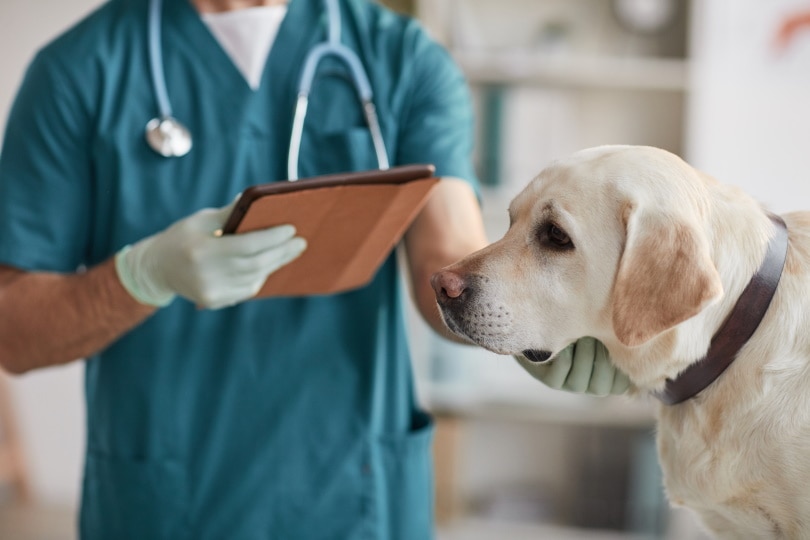
- Inflammation
Both sinusitis and rhinitis result in the inflammation of a dog’s nasal passages. They are also known to increase the production of mucus. If the inflammation is not addressed, bacterial infections can develop that will make the mucus discharge even worse. Other symptoms of sinusitis or rhinitis include sneezing and a loss of appetite. These problems will need treatment by your vet.
- Foreign Bodies
Sometimes, debris and small objects can become lodged in a dog’s nose. If this happens, mucus may develop due to the irritation the object is causing. Your pooch will probably keep pawing at their nose or rubbing their nose on objects to try to dislodge the object. If you can see the object or debris in your dog’s nose, you can carefully use tweezers to remove it. More than likely you will need to visit the vet to help.
- Allergens
Allergies are common problems for dogs. They could be due to food or the environment, but the symptoms are usually the same. In addition to a runny nose, your pooch may display signs of allergies in the form of sneezing, itchiness, runny eyes, and consistent licking. Getting rid of the source of the allergic reaction should get rid of your dog’s mucus production problem. However, this is easier said than done, especially for environmental allergies.
- Canine Distemper
This is a serious virus that could lead to death if not treated quickly enough. Canine distemper can be contracted through contact with other animals (especially stray ones) and via particles in the air. One sign of canine distemper is a runny nose and mucus. But if your dog is vaccinated and does not spend time outdoors where they can come into contact with strange animals, canine distemper is likely not the reason that your dog is producing so much mucus.
4. Contact Your Veterinarian
If you cannot figure out why your dog is producing mucus or you have a clue about what the problem is, it is important to contact your veterinarian and talk to them about it. They should be able to provide you with advice and recommendations to ease your dog’s discomfort and diagnose the problem. As well as the problems listed above there are many others that your vet will consider. Most illnesses cannot be treated without an examination and medications from the vet so book in for a check-up to get your pooch on the path to good health.
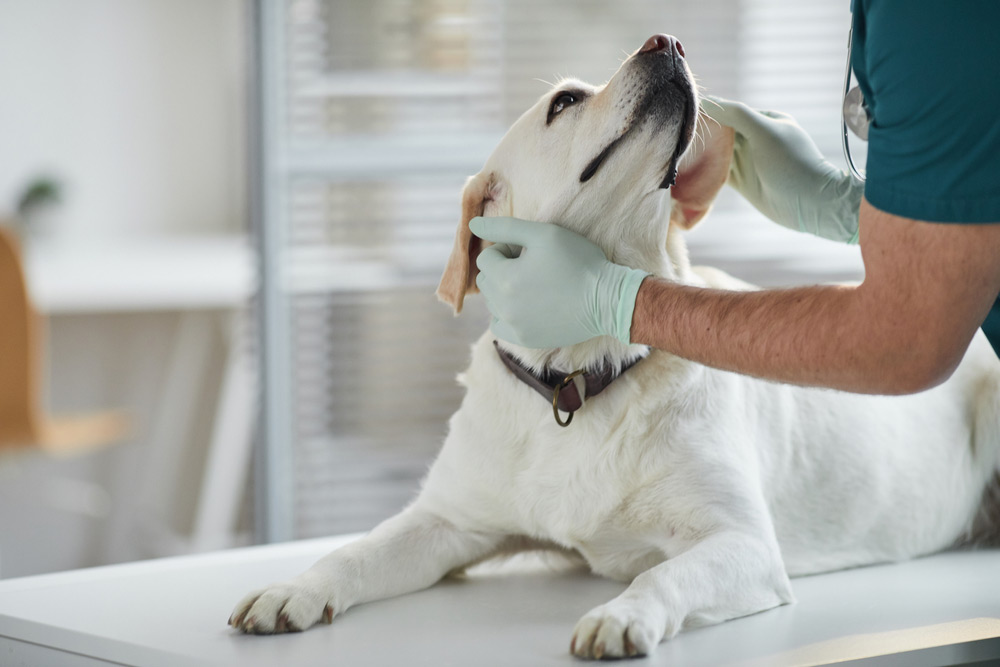
A Quick Recap
Dealing with dog mucus is gross but necessary. Cleaning your dog’s mucus is important because it will help relieve their discomfort. Figuring out the cause of the mucus production is also crucial because without doing so, your dog can succumb to serious illnesses and infections that are tough and expensive to treat.
Featured Image Credit: RonaldPlett, Pixabay

